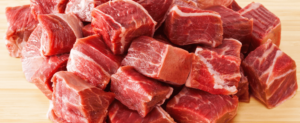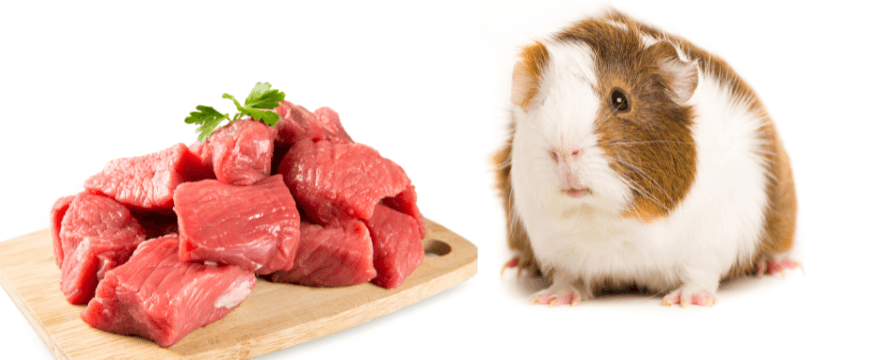Guinea pigs are naturally vegetarians, even though people love them for how cute they look and how gentle they are. Their diets often include hay, fresh vegetables, and pellets made specifically for them. However, the question often arises: can guinea pigs eat meat? In this article, we’ll explore this subject to give you a thorough understanding of guinea pig nutrition.
Understanding Guinea Pig Digestive Systems
Guinea pigs’ digestive systems are very complicated and are made to break down woody plant matter. Their digestive systems are perfectly adapted to efficiently process cellulose and extract nutrients from plant-based diets. Being herbivores, they don’t have the digestive enzymes needed to efficiently process meat.
Myths About Meat in Guinea Pig Diets
Guinea pigs are small pets that should mostly eat plants, even though some historical stories say they ate small amounts of meat in the wild. Although they might occasionally snack on insects or small amounts of protein in their natural habitat, it’s important to note that meat should not be a regular component of their diet as pets.
Why do guinea pigs not eat meat?
Guinea pigs have a natural inclination towards plant-based diets, as they are herbivores. The way they process food is different from that of carnivores or omnivores.
Here’s why:
- Gut Bacteria Powerhouse: Proper digestion in guinea pigs is highly dependent on the presence of specific bacteria that effectively break down plant matter. Introducing meat can disrupt the delicate balance of their digestive system, which may result in digestive issues.
- Enzyme Deficiency: Guinea pigs do not possess the necessary enzymes to effectively digest animal protein. Unprocessed protein can lead to a range of health issues.
- Health Risks on the Horizon: Eating meat can have negative effects on your guinea pig’s health, such as causing diarrhea, obesity, and potential kidney issues.
Risks and Concerns Associated with Feeding Meat
Adding meat to a guinea pig’s diet can have serious health consequences. Their digestive systems are not well-suited for processing high-protein, high-fat foods such as meat. Feeding meat to guinea pigs can cause digestive problems such as diarrhea, bloating, and gastrointestinal discomfort. In addition, consuming too much protein can put a strain on their kidneys and lead to issues with their urinary tract.
Alternatives to Meat in Guinea Pig Diets
For optimal nutrition, it’s important to offer guinea pigs a diverse range of fresh vegetables, leafy greens, and high-quality hay. It’s crucial to include foods that are high in vitamin C, like bell peppers and kale, in a guinea pig’s diet. Guinea pigs rely on these foods because they cannot produce this essential nutrient themselves.
Signs of Malnutrition or Health Issues
It’s crucial for guinea pig owners to keep a close eye on their pets’ well-being and watch out for any signs of malnutrition or health problems. If you notice symptoms such as weight loss, lethargy, and changes in appetite or behavior, it’s important to seek the expertise of a veterinarian who specializes in caring for exotic pets. Regular check-ups are essential for ensuring the overall health and well-being of your guinea pig.
Expert Recommendations and Guidelines
Experts in guinea pig care strongly discourage the practice of feeding meat to these adorable pets. Instead, they suggest a diet that mainly includes hay, fresh vegetables, and a small portion of guinea pig-specific pellets. Ensuring their health requires the provision of clean, fresh water at all times.
After all that, it is important to note that including meat in a guinea pig’s diet is neither safe nor suitable, despite their curiosity towards it. As responsible pet owners, it is our responsibility to ensure that our furry friends receive the necessary nutrition for their well-being. Our guinea pigs may live long, healthy lives on a diet rich in fiber and nutrients.

Leave a Reply